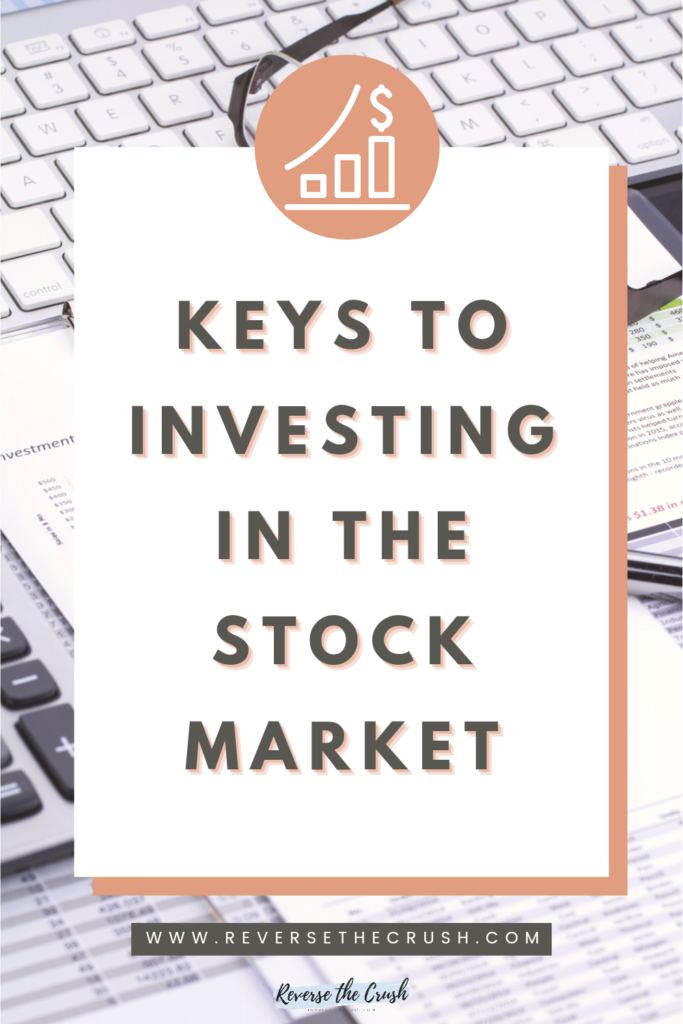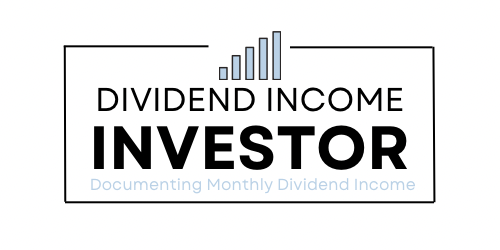Keys to investing in the stock market — 16 important behaviours to remember to successfully invest in equites. I am not a licensed investment advisor and this article is not investment advice. This article may contain affiliate links.
Over time, I have learned that there are keys to investing in the stock market.
Investing is not just betting on a stock in the industry you believe is the future.
Furthermore, there are certain keys to investing in the stock market that are even more important than intelligence.
In this article, I aim to pinpoint 16 keys to investing in the stock market.
Let’s dive in.
Keys To Investing In The Stock Market
Investing in stocks is complex to say the least.
To be successful, there are key behaviours that the best investors of all time seem to follow.
Based on watching interviews from the greatest investors of all time, reading books on investing, and investing in the stock market for nearly a decade, this is my summary on the keys to investing in the stock market.
Related Article: The Best Investors Of All Time – The 10 Greatest Investors Ever
Keys To Investing In The Stock Market

The 16 Keys To Investing In The Stock Market
Temperament — Don’t Act On Emotion
A person’s nature or temperament is possibly the most important trait for becoming a good investor.
Simply put, you want to have a calm temperament as an investor.
You never get too high or too low because of what happens in the stock market.
You are not greedy enough to switch investment strategies because of how another asset class has performed in the short term.
Further, you do not get scared out of positions when the stock price goes lower than expected.
As long as the company fundamentals remain the same, you know that a lower stock price is an opportunity to pick up additional shares, if it is a great business.
Additionally, you are not swayed by the crowd. You don’t follow the crowd. You stick to your investment strategy and are never swayed by what happens in the stock market.
You need to develop a nearly opposite view of the market to outperform.
Basically, you need to view market corrections as a good thing and bull markets as a challenging time to find stocks to buy.
Don’t Be Impulsive
Because of your calm temperament, you never make impulsive decisions when it comes to investing.
You just follow your investment plan and stick to a routine.
You do not buy a stock based on FOMO, nor do you sell based on a bad news article.
Instead, take the time to do your investment due diligence. Research it yourself.
Act after research and taking enough time to think about how your decision fits in with your overall plan.
Take your time.
Consistency Is Important
If I have one key strength in life, it’s probably that I am extremely consistent.
Of course, it’s a gift and a curse, because consistency can be a bad thing on things that are a waste of time.
But for something like investing, consistency is one of the most important aspects.
For instance, investors must consistently save and invest money into the stock market. Without capital to invest, compound interest won’t work.
Whether you choose a lump-sum investing or dollar cost averaging strategy, the key is to be consistent with it for decades.
Pay yourself a percentage of your income first and invest it for decades.
Have Patience
Investing is such a thrill when you initially begin.
At first, there’s the possibility that you are naturally the next Warren Buffett.
You check the stock you invested in constantly and expect it to go to the moon almost immediately.
But then six months goes by and the stock hardly moves.
After a while, you get bored of it and stop investing altogether.
The worst-case scenario is that you sell the stock.
Five years later, you decide to check the stock that hardly moved for six months and realize it doubled.
If you are not naturally a patient person, investing will be a challenge.
In that scenario, you either need to invest with an advisor to protect your wealth, or take on more risk and accept massive volatility.
Invest Long Term
Investing long term and having patience are similar points.
But I wanted to stress the point that investing is a long term endeavour.
Frankly, it’s one of the reasons I like investing so much. It’s a craft I can improve at for the majority of my life.
To put it bluntly, you only invest in the stock market if you have a minimum 5 to 10 year time frame.
If you need the money in six months, you shouldn’t be investing it in the stock market.
The Amount You Contribute Matters
Although it’s possible to make a lot of money by investing a little, it’s rare.
So, the amount of money you save and contribute matters.
It’s a good idea to develop a habit of saving money and paying yourself first.
Then take that money and contribute it to your investment accounts.
The more you save and the earlier in life you invest it, the more time it will have to grow.
A 10% return on $1,000 is $100. A 10% return on $100,000 is $10,000.
Understand Your Risk Tolerance
As an investor, you have to understand yourself and your personal risk tolerance.
If you are someone who is uncomfortable with volatility, investing in growth stocks is probably not the right fit.
Even though the returns would actually be higher, investing in growth stocks could be a bad idea for an investor with low risk tolerance. They could end up selling at a low if they get scared.
As such, it’s better for an investor with low risk tolerance to invest in lower risk assets and accept the lower return. At least they will get a consistent return.
Manage risk
Warren Buffett’s number one rule for investing is to never lose money. Number two is to never forget number one.
“Rule Number One: Never Lose Money. Rule Number Two: Never Forget Rule Number One” — Warren Buffett
In other words, make sure you manage risk properly when you are investing in the stock market.
Create some sort of strategy to protect your wealth. It could mean having an emergency fund, diversifying assets, or holding less risky stocks.
Think about an asset in terms of how much you have to risk instead of how well it could perform.
Keys To Investing In The Stock Market

Stick To The Investment Strategy That Keeps You Invested
One of the reasons I am primarily a dividend investor is because it’s the strategy that keeps me invested.
To be honest, I just really enjoy the concept of dividend investing. I like measuring the incremental growth of dividend income on a monthly and yearly basis.
I like to treat dividend investing as if it is my own personal business.
Because of the ability to measure and track it, it is the investment strategy that keeps me invested.
If the market goes down, I’m not worried because it’s a chance to increase my dividend income.
Of course, total returns matter more than the dividend income. So, I prioritize that.
But it’s the incremental growth of my dividend income that keeps me invested for the long term.
Diversify
Unless you are absolutely 100% certain about a company’s future, you must diversify your wealth.
If you are a dividend investor with one dividend stock and the company cuts its dividend, you immediately lose 100% of your dividend income.
But if you are a dividend investor with 10 dividend stocks and one cuts its dividend, you only lose 10% of your income.
In some cases, it’s better to not diversify. For example, if you an absolute investing guru like Charlie Munger or something.
But for most people, it’s better to diversify to manage risk and protect your wealth. Every investor is bound to be wrong on some of their stock picks.

Read And Learn From The Best Investors
No teacher can teach investing as well as the best to ever do it.
If they could, they wouldn’t be teaching it. They would be Warren Buffett.
As such, I prefer to learn from the best investors of all time.
I read books from them, listen to their interviews, read letters from Warren Buffett, and check all their quotes.
Related Article: Best Investors Of All Time: The 10 Greatest Investors Ever
Reinvest Dividends
Especially in the early stages of investing, you want to reinvest all your dividends and profits.
Reinvesting your profits and dividends will maximize compound interest.
You don’t want to be spending all your investment returns, it almost defeats the purpose of investing.
In my opinion, it would be better to invest less and spend more money than it is to withdrawal dividends for spending.
Money in your investment account should be reinvested in the investment account until the goal or time frame is met. For example, you don’t touch your retirement money until retirement.
Reinvest all dividends and profits to maximize compound interest.

Read Earnings Reports To Know How The Company Is Performing
To understand more about investing and how the companies you invest in are performing, read quarterly earnings reports.
This will show you how revenue is growing or not, and it will give you an idea of the quality of management.
Visit the company’s website and view the Investors’ section of the site.
Track And Compare Your Performance
The other thing you can’t guess on is your own performance.
As an investor, you must track and compare your investment performance to know if you are doing well or not.
If your returns are low, you might need to change your investment strategy.
Of course, you never want to compare yourself to others. Usually it’s best to choose your own path.
But when it comes to investing, you can compare your returns to yourself or to an index like the S&P 500.
Ideally, you want your investments to return the same or better than the S&P 500.
Know What You Own
According to legendary investor Peter Lynch, you need to know what you own and why you own it.
“Know what you own, and know why you own it” — Peter Lynch
Essentially, if you buy a stock, you should have a good reason for buying that stock.
You need to understand the company behind the stock, and you need to have a good reason to believe that company will be able to continually increase earnings.
You Should Probably Just Invest In The S&P 500
Frankly, you should probably just invest in the S&P 500.
Your returns will probably be higher than if you try to manage a stock portfolio on your own.
It will be easier and less time consuming if you just own an S&P 500 index fund like VSP or VOO.
Best of all, you will likely get better returns. The S&P 500 returned over 27% in 2021.
Personally, I still manage my own portfolio. My goal is to be competitive with the S&P 500 while simultaneously building a growing dividend income stream.

Final Thoughts On The Keys To Investing In The Stock Market
Now you know my 16 keys to investing in the stock market.
Of course, I still have a lot to learn about investing. On this blog, I share what I learn about investing as I go. I chronicle my journey to financial independence through dividend investing to improve at it.
Investing requires constant reading and learning, which is what makes it interesting.
Perhaps in a few years time, I will have to alter these 16 keys to investing in the stock market.
For now, I think these are pretty good keys to start with.
Similar Articles On Investing To Check Out
What Makes A Good Investor: Top 20 Characterics
Best Investors Of All Time: The 10 Greatest Investors Ever
I am not a licensed investment or tax adviser. All opinions are my own. This post may contain advertisements by Monumetric. This post may also contain internal links, affiliate links to BizBudding, Amazon, Bluehost, and Questrade, links to trusted external sites, and links to RTC social media accounts.
Connect with RTC
Twitter: @Reversethecrush
Pinterest: @reversethecrushblog
Instagram: @reversethecrush_
Facebook: @reversethecrushblog
Email: graham@reversethecrush.com


 Advantages To Mutual Funds
Advantages To Mutual Funds
